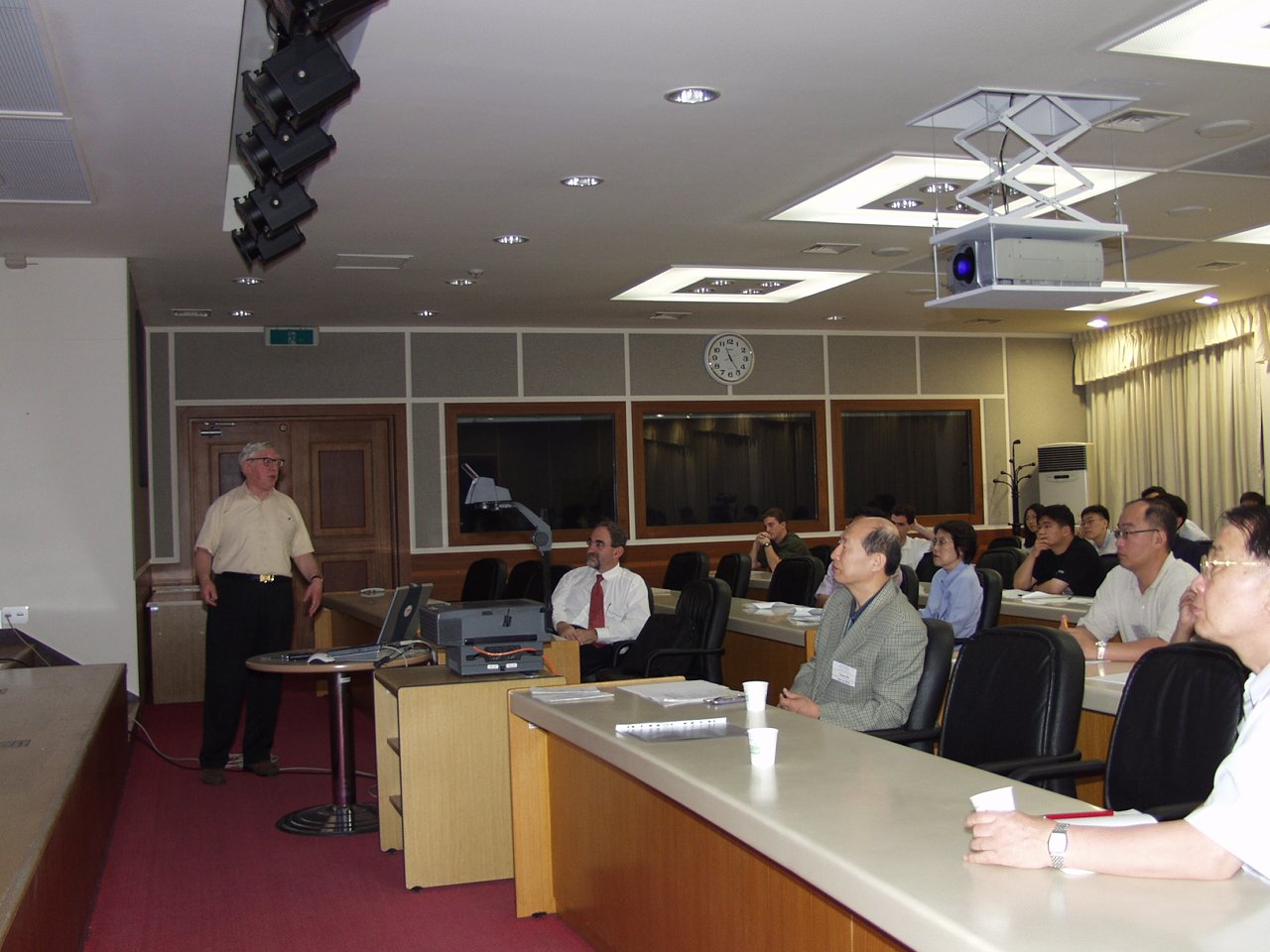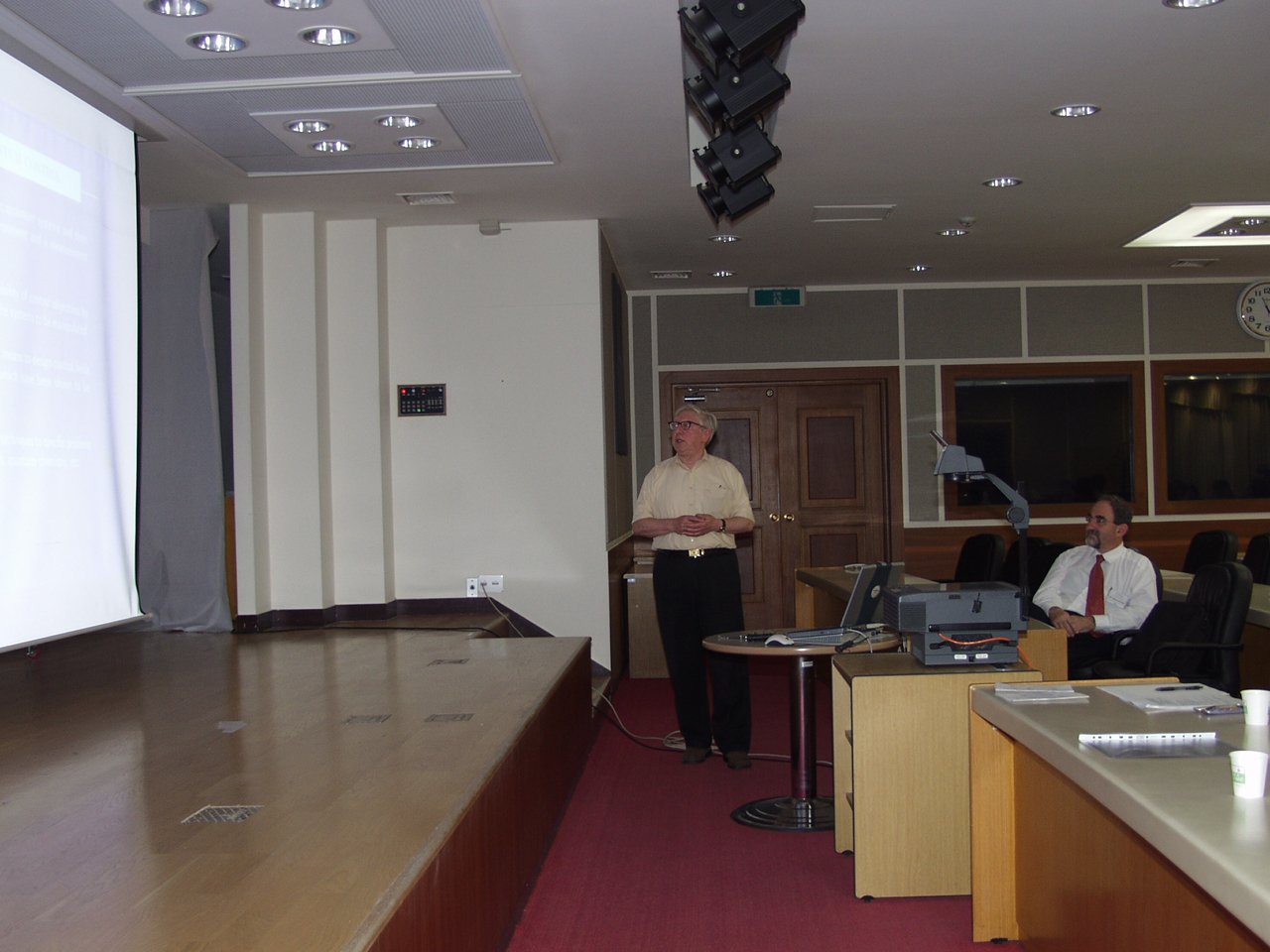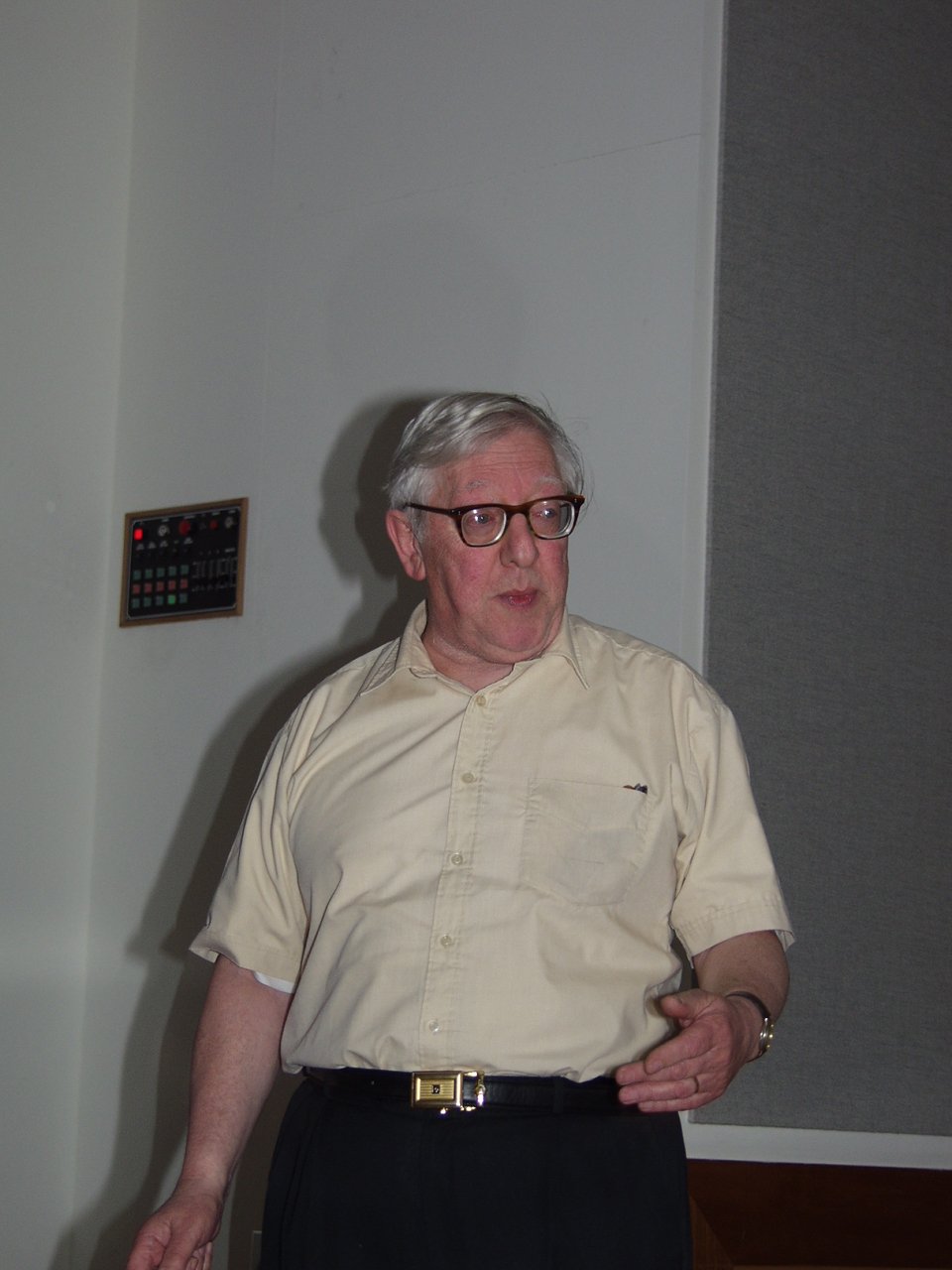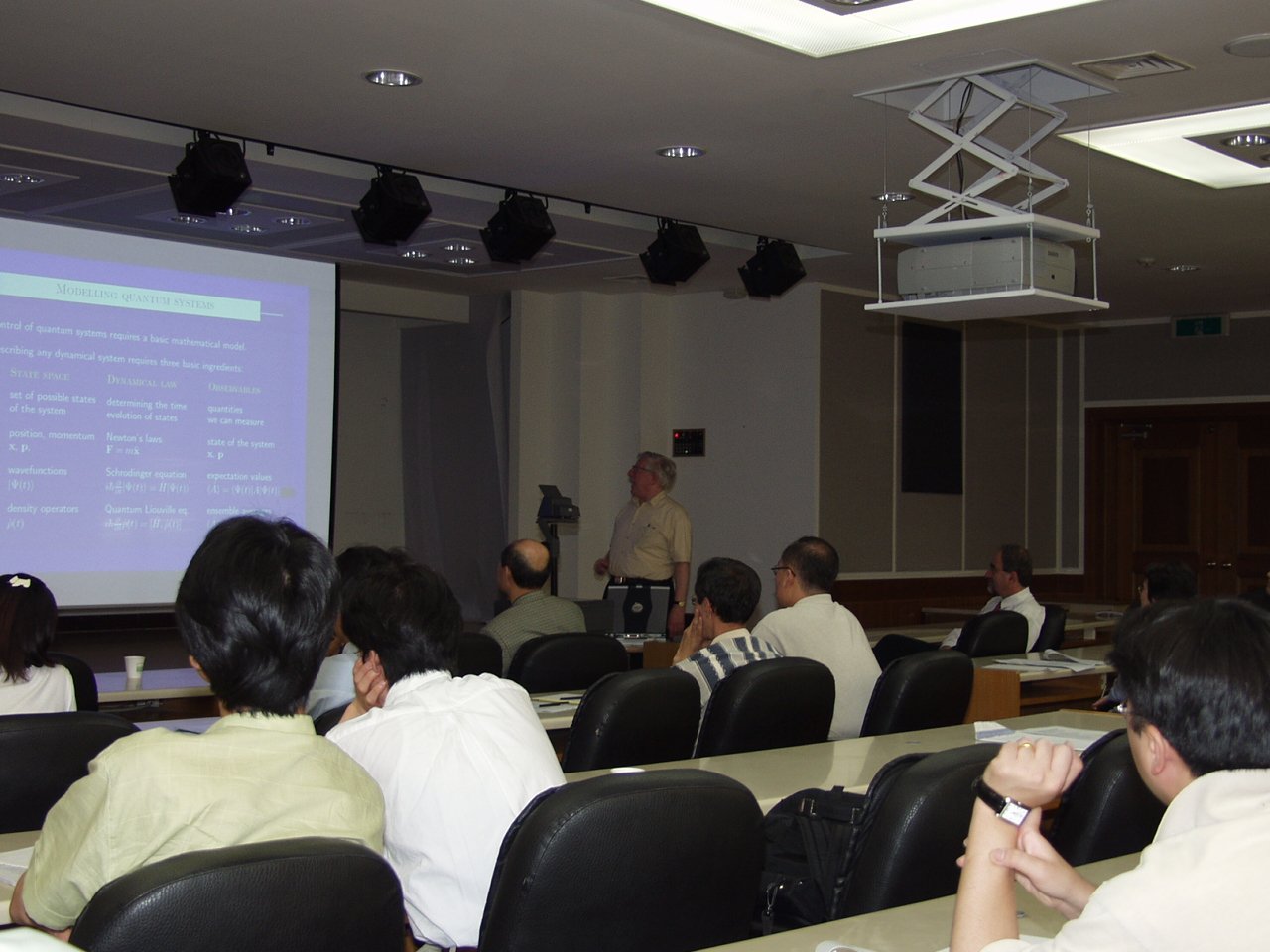

Allan Solomon (Open U, UK)
Presentations: Click_Here_1, Click_Here_2, Click_Here_3, Click_Here_4




Professor of Mathematical Physics at the Open University,
United Kingdom.
Author of over 150 articles and editor of three books on
applications of mathematical techniques, especially group theory, to condensed
matter, quantum optics, and quantum control.
Current Research Interests:
(a) Algebraic Theory
of Quantum Control.
(b) Entanglement in exactly solvable models.
(c)
Group and Quantum Group Theoretical Approach to Exotic Quantum Optic States,
and Bose-Einstein Condensation.
Talks:
1. Quantum Control and its Limitations
References
H.
Rabitz, R. de Vivie-Riedle, M. Motkus and K. Kompa, "Whither the future
of controlling quantum phenomena?" Science 288, 824, 2000.
H. Fu, S. G. Schirmer, A. I. Solomon, "Complete
controllability of finite-level quantum systems" J. Phys. A 34, 1679, 2001.
S.
G. Schirmer, A. I. Solomon and J. V. Leahy, "Degrees of controllability
for quantum systems and application to atomic systems," J. Phys. A 35,
4125, 2002.
S. G. Schirmer, A. I. Solomon and J. V. Leahy,"Criteria for reachability of quantum states," to appear in J. Phys. A, preprint quant-ph/0110171
The successful implementation of Quantum Computing algorithms depends on the ability to prescribe the state of a quantum system and to implement a set of unitary operations (quantum gates) precisely. Preparation of quantum states and control of unitary evolution are among the primary objectives of quantum control theory. In this talk I will discuss the mathematical foundations of quantum control theory, degrees of controllability of non-dissipative quantum systems, and how we can theoretically determine the degree to which a given quantum system may be controlled. To illustrate the results, we study the interaction of light of various polarisations with an atomic system with degenerate energy levels.
2. Quantum Control: Implementation and Dissipation
References
S. G. Schirmer and M. D. Girardeau and J. V. Leahy, "Efficient algorithm for optimal control of mixed-state quantum systems," Phys. Rev. A 61, 012101, 2000.
V. Ramakrishna, R. Ober, X. Sun, O. Steuernagel, J. Botina, H. Rabitz, "Explicit generation of unitary transformation in a single atom or molecule," Phys. Rev. A 61, 02106, 2000.
C. Ahn, A. C. Doherty and A. J. Landahl, "Continuous quantum error correction via quantum feedback control," Phys. Rev. A 65, 042301, 2002.
and I expect to have further references as this topic is developing.
In the previous talk I discussed the mathematical basis
of quantum theory, and how to determine the degree of controllability of non-dissipative
quantum systems. In this talk I will focus on the implementation of quantum
control processes. I shall discuss control field design using optimal
control or learning algorithms as well as constructive control techniques.
Finally,
I will take into account the effects of dissipation and show that although it
complicates quantum control, it also opens new possibilities for control of
quantum systems.